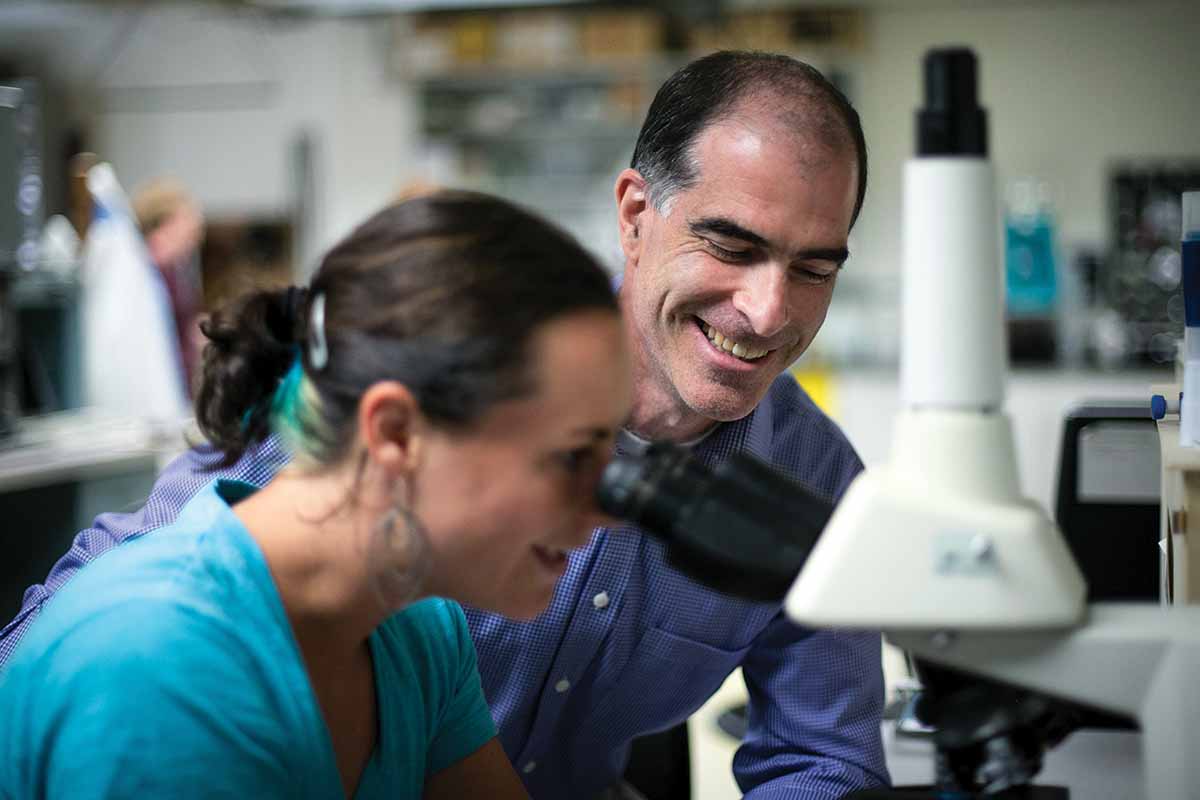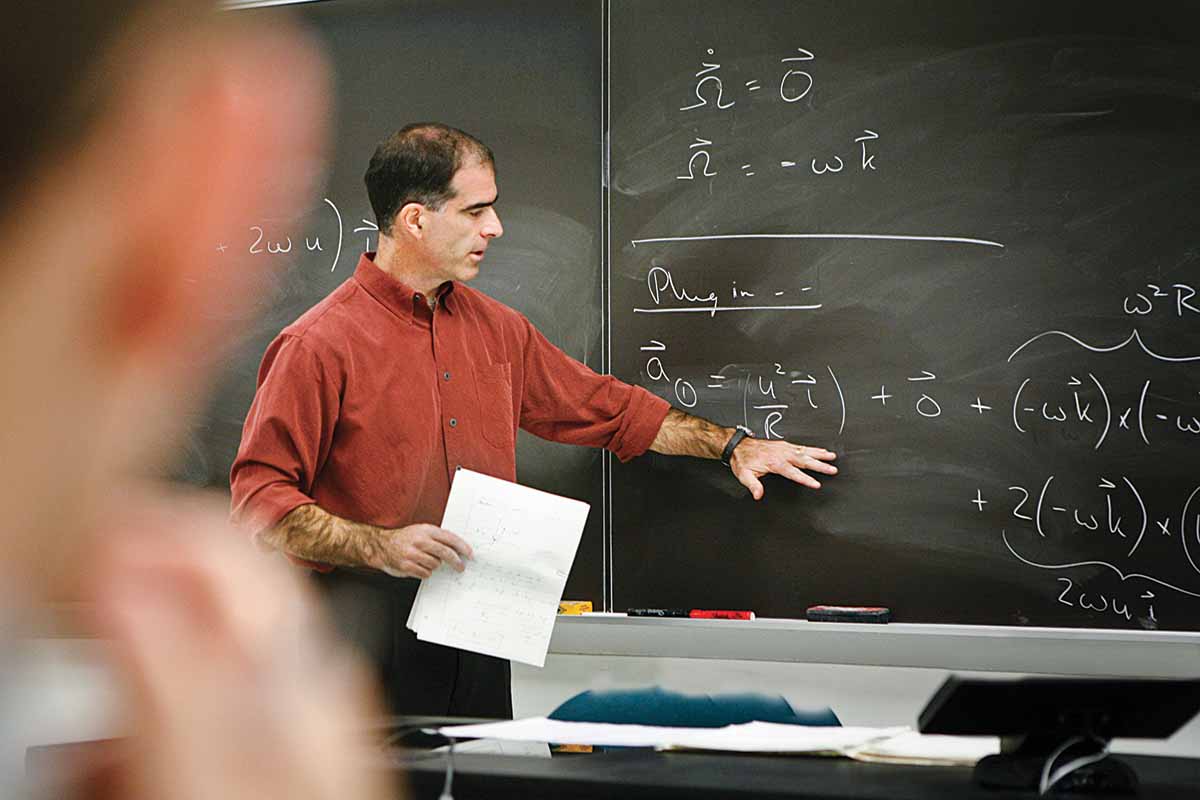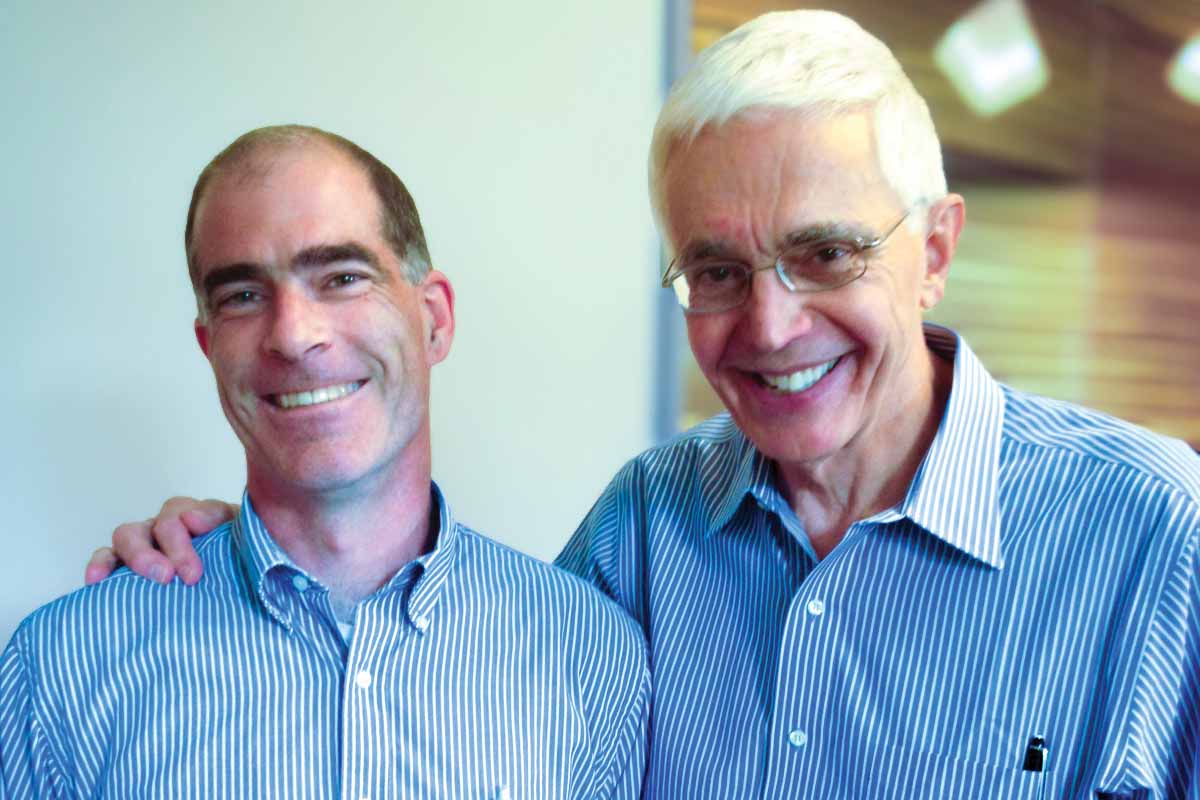Leadership at the intersection
Phil Bayly ends service as MEMS chair with a long list of accomplishments
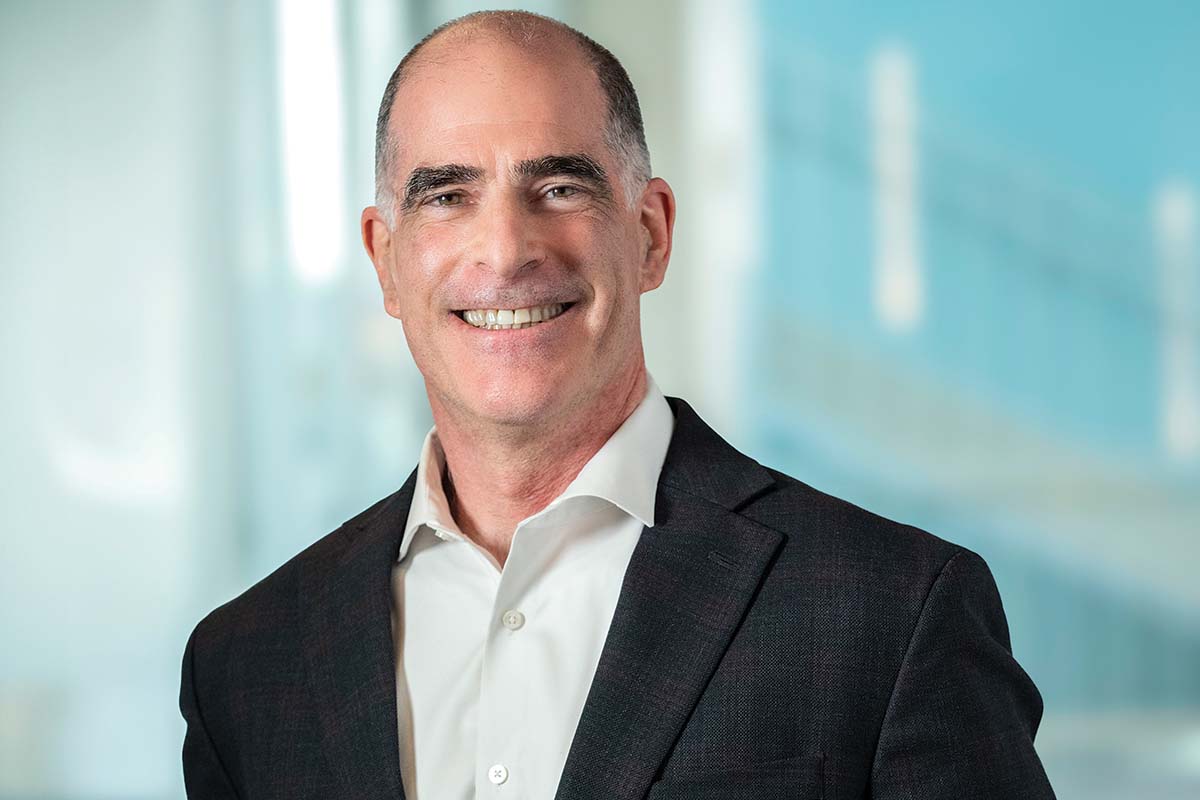
When Philip V. Bayly became chair of what is now the Department of Mechanical Engineering & Materials Science (MEMS) in 2008, the Engineering School was experiencing a tremendous amount of change. A controversial dean had made some unpopular changes to academic programs, including in what was then known as Mechanical, Aerospace and Structural Engineering (MASE), and tensions were high. In addition, the nation was in economic crisis from the Great Recession.
“It was a time of turmoil and reorganization and change,” recalls Bayly, the Lee Hunter Distinguished Professor. “We had to decide not to offer civil engineering and aerospace engineering as majors. I think it was a necessary change, and it was an opportunity to reset the direction of the department.”
That reset launched what became MEMS in 2010 on an upward trajectory. Under Bayly’s steady leadership and calm demeanor, MEMS has not only rebounded from its changes but has thrived. Undergraduate student enrollment has increased by 85%, while master’s degree enrollment has increased by 295%, and PhD student enrollment has increased by 80%.
Phil Bayly has done a wonderful job building and growing the Mechanical Engineering & Materials Science department over the past 17 years.
— Aaron Bobick
“Those challenges required us to focus on what we could do on a world-class level,” said Bayly, who will step down as chair at the end of the 2024-25 academic year. “We decided to focus on what WashU is really good at, what our faculty are really good at, what our students are really looking for, and make sure we focus on doing those really well.”
One of the things the department does well, Bayly said, is finding connections between mechanical engineering and materials science and other disciplines.
“I think we’re one of the best places in the world to do mechanical engineering as applied to medicine and biology and a really good place to advance materials for applications in medicine and biology,” said Bayly, who joined the WashU faculty in 1993 after earning a doctorate in mechanical engineering from Duke University. “It’s also turning into a really interesting place to do research at the intersection of mechanical engineering and energy, environmental and chemical engineering.”
“Phil Bayly has done a wonderful job building and growing the Mechanical Engineering & Materials Science department over the past 17 years,” said Aaron F. Bobick, dean and the James M. McKelvey Professor. “Under his leadership, the department has grown significantly in the number of students, in research awards, in outstanding faculty and in reputation. He did all this while maintaining an active research lab and teaching load.”
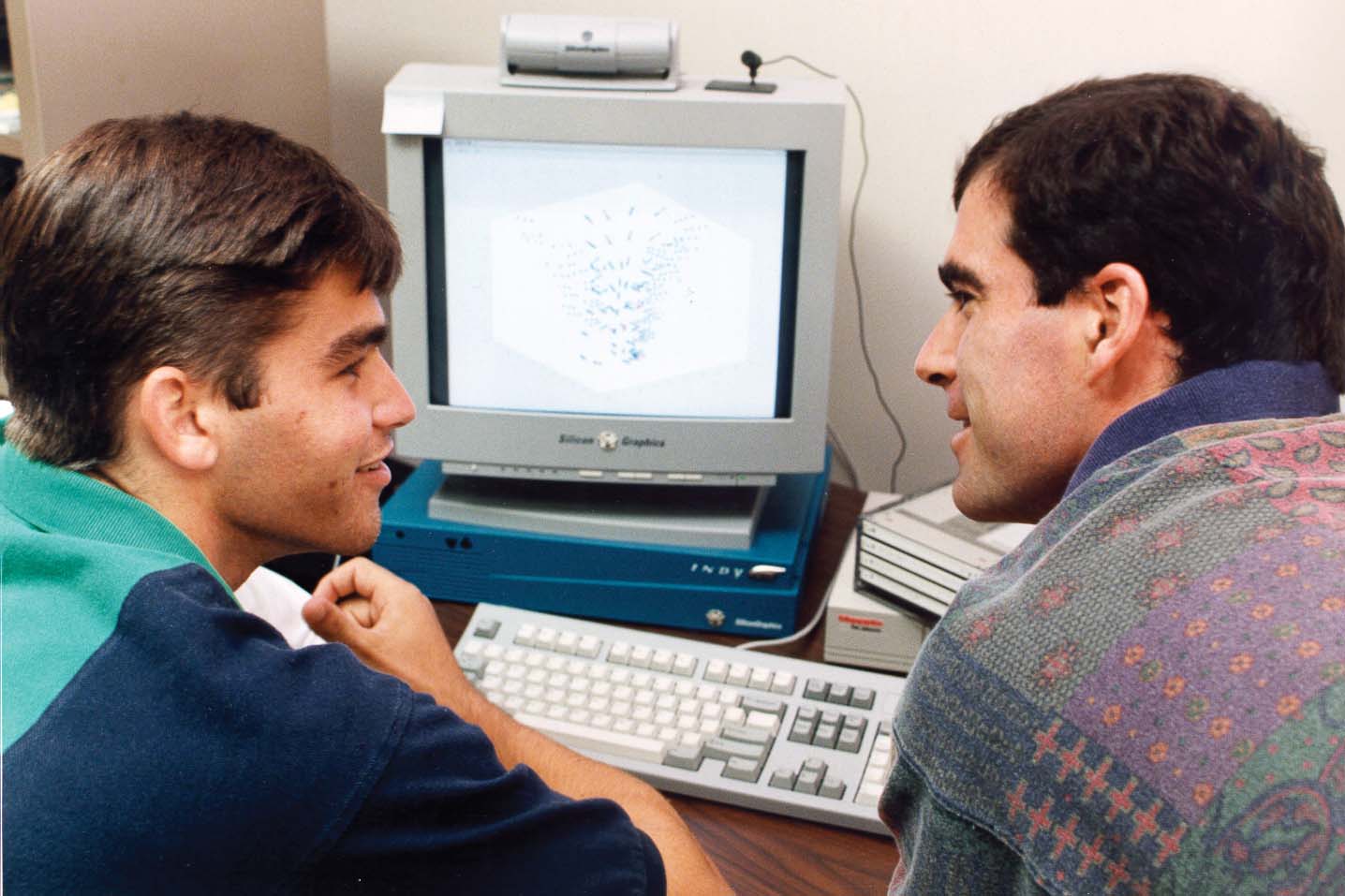
(From left) Alan R. Barnette, MD, with Bayly when Barnette was an undergraduate researcher in Bayly’s lab. (WashU photo)
Not only has the department grown in student enrollment, but in research awards and faculty numbers as well. Faculty research awards increased 587% to $11.8 million in 2024, and research expenditures increased 377% to $9.2 million. Department faculty increased from 10 tenured/tenure- track faculty and one teaching faculty member in 2008 to 19 tenured/tenure- track faculty and 12 non-tenure track teaching or research faculty in the current academic year. The number of women faculty in MEMS increased from two to eight.
“It’s really been a pleasure and privilege to help MEMS grow,” Bayly said. “The three deans I’ve worked with — Sal Sutera, Ralph Quatrano and Aaron Bobick — have been generous in their support and encouragement. Most importantly, we have a group of faculty that truly cares about our students and helps them to succeed.”
One of the faculty who came to the Engineering school under Bayly’s leadership is Spencer Lake, associate professor of mechanical engineering & materials science.
Dr. Bayly has been a fantastic mentor to me since I came to WashU in 2012. His genuine interest in people and sincere desire to see them succeed have enabled him to lead our department with kindness and encouragement.
— Spencer Lake
“Dr. Bayly has been a fantastic mentor to me since I came to WashU in 2012,” Lake said. “His genuine interest in people and sincere desire to see them succeed have enabled him to lead our department with kindness and encouragement.”
Bayly is one of those faculty members who cares about his students. A frequent spectator at WashU athletic events, Bayly has been WashU’s NCAA Faculty Athletics Representative since 2020, serving as a liaison between the university and the athletics department. It is a fitting role, since McKelvey Engineering students — particularly mechanical engineering students — make up a large percentage of student athletes at WashU.
Bayly has been a true champion for the WashU Summer Engineering Fellowship (WUSEF) program that provides research opportunities for students from groups in the minority in engineering. Many of those students have conducted research in Bayly’s lab, including Jordan Escarcega, who earned a doctorate in mechanical engineering in 2024 and is now a postdoctoral research associate in the lab of Sara Roccabiana, associate professor of mechanical engineering & materials science.
Susan Dutcher, professor of genetics and of cell biology and physiology at WashU Medicine, has been a frequent collaborator with Bayly on cilia research and said Engineering students from Bayly’s lab have brought a unique perspective to the biology of cilia.
“Phil is always willing to help teach us about the principles of engineering, promote interactions with members of the Department of Mechanical Engineering & Materials Science, and show how these ideas can be applied to the cell biology of these cellular organelles,” Dutcher said. “Phil is a person who loves teaching and bringing people together to interact.”
In addition to his academic leadership, Bayly provided input on the design of Henry A. and Elvira H. Jubel Hall, which became the department’s home in summer 2019, its location serving as a symbolic bridge between engineering and medicine. The building, which contains classrooms, laboratories, faculty offices, study areas and the Spartan Light Metal Products Makerspace, allows mechanical engineers to work closely with scientists and engineers to promote the convergence of mechanics, materials science and nanotechnology.
Don Jubel, a member of the McKelvey Engineering National Council and an emeritus member of the university’s Board of Trustees, recalled a trip to Duke and Yale universities with Bayly and Bobick to visit their makerspaces. “The time we spent together at meals and on planes is where I learned of Phil’s dedication to McKelvey Engineering, and more importantly, his kind disposition,” Jubel said. “He was instrumental in making Jubel Hall a success, for which I am very grateful.”
After he concludes his time as department chair, Bayly will remain on the faculty and continue his research on biomechanics from cell motility to traumatic brain injury. His active research lab focuses on impact, vibration, waves, oscillations and instability in mechanical and biomedical systems, using magnetic resonance imaging (MRI) to investigate the mechanics of brain injury and brain development.

